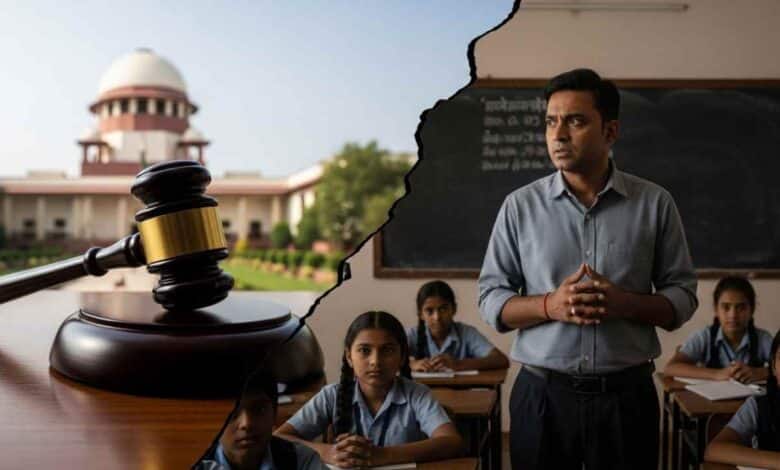TET Compulsory: Misuse of Power by NCTE! What is the Future of Teachers after the Supreme Court’s Ruling?

TET Compulsory: A recent controversy has emerged regarding the Teacher Eligibility Test (TET) and the role of the National Council for Teacher Education (NCTE). A section of teachers believes that the misuse of power by the NCTE has created the backdrop for this ruling. In this report, we will try to present a complete picture by bringing together the role of the NCTE and some recent information.
Allegations of NCTE’s Power-Grab and Misuse
In 2002, Article 21(A) was added to the Indian Constitution through the 86th Amendment, with the primary objective of providing free and compulsory education to children aged 6 to 14. To implement this, the “Right to Education Act” was passed in 2009. According to this act, the central government assigned an academic authority the responsibility of determining the curriculum and the minimum qualifications for teachers. Accordingly, on March 31, 2010, the Ministry of Human Resource Development (MHRD), now known as the Ministry of Education, appointed the NCTE as that academic authority.
The NCTE was given two main responsibilities:
- Curriculum Development: To determine the curriculum and evaluation procedures for elementary education.
- Determining Teacher Qualifications: To set the minimum qualifications for appointment as a teacher.
Allegations have arisen that the NCTE misused its power by creating rules that were retroactively applied to previously appointed teachers, which is not legally correct. This led to the matter reaching the Supreme Court, which ultimately ruled that all teachers must pass the TET.
The Supreme Court’s Verdict and the Role of NCTE
The Supreme Court has delivered a significant verdict on this issue, questioning some of NCTE’s decisions. Teachers feel that the NCTE has overstepped its authority by imposing new rules on older teachers, which is not legally acceptable. The intervention of the central government and the Ministry of Education is now required to amend this judgment.
NCTE’s New Regulations for 2025
The NCTE has recently introduced some new rules for B.Ed and D.El.Ed courses, which will be effective from 2025. These rules include:
- Dual Degrees Banned: Students will not be able to pursue B.Ed and D.El.Ed courses simultaneously.
- Mandatory Internship: A 6-month school internship has been made mandatory for both B.Ed and D.El.Ed courses.
- Limitations on Online Education: Only some theoretical subjects can be taught online. The main teaching and internship must be done offline.
- Revised Admission Process: The admission process has been made stricter, and the curriculum now includes digital education, inclusive teaching methods, and modern pedagogical techniques.
The Path Forward
The role of the NCTE is crucial for improving teacher quality and the standard of education. However, it is essential to ensure the proper use of power and maintain transparency. The Supreme Court’s verdict and the new regulations will play a significant role in determining the future of teachers. It now remains to be seen what steps the central government and the Ministry of Education will take in this matter and how successful they will be in protecting the interests of teachers.

